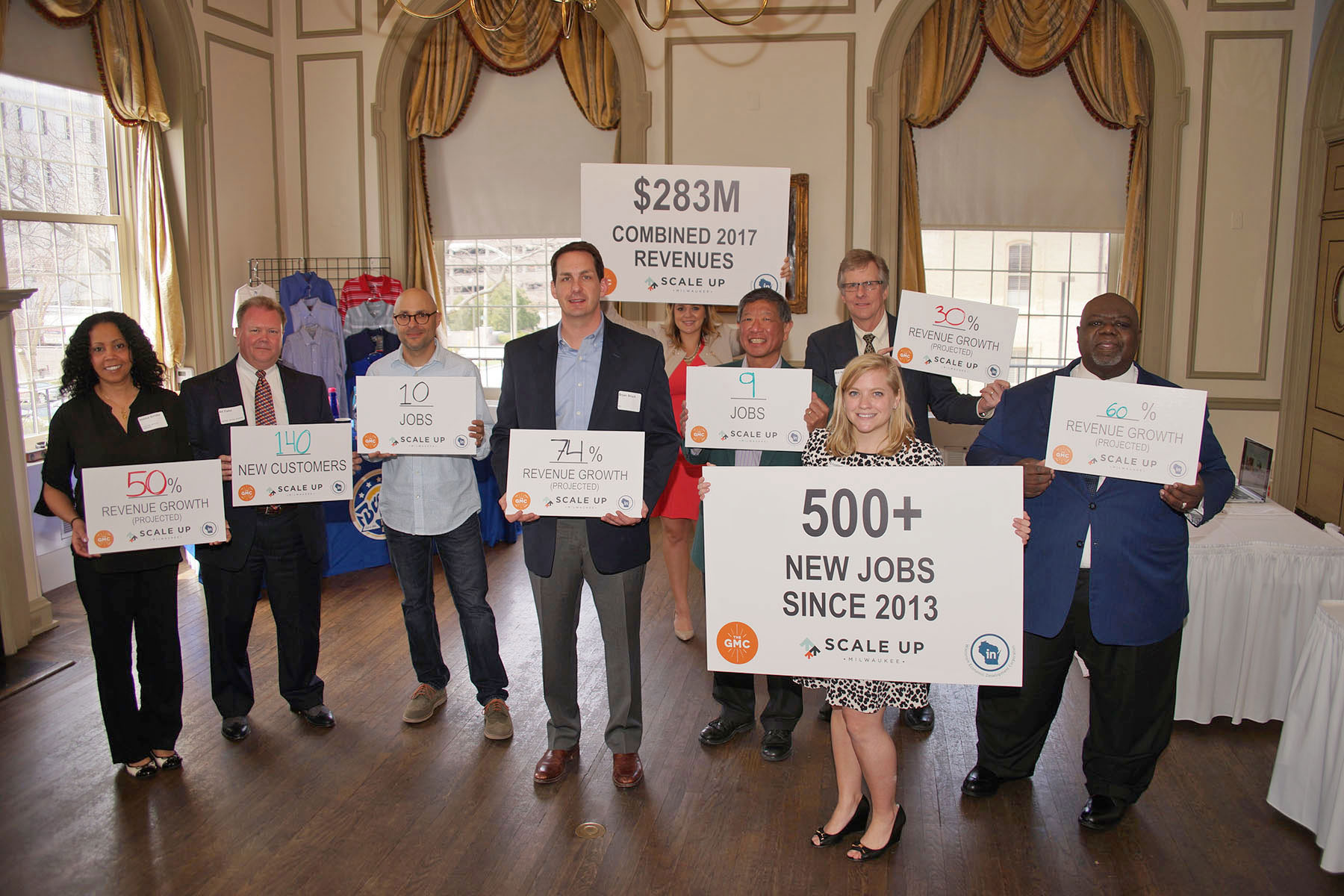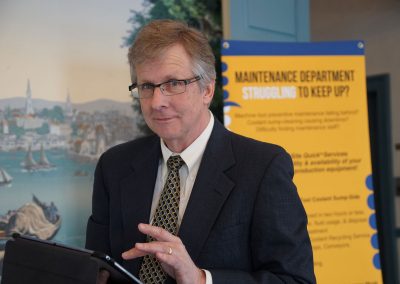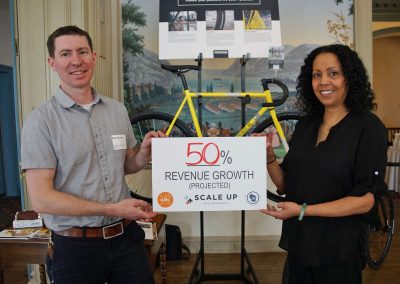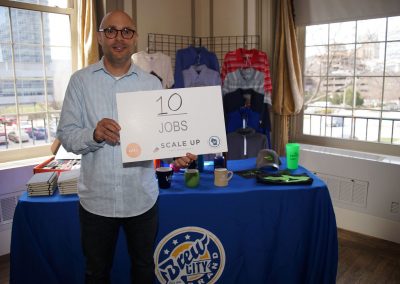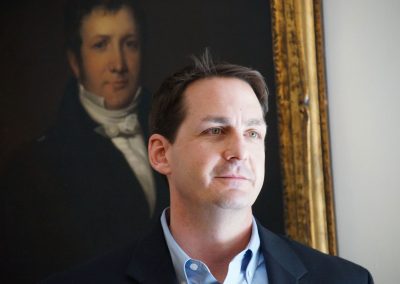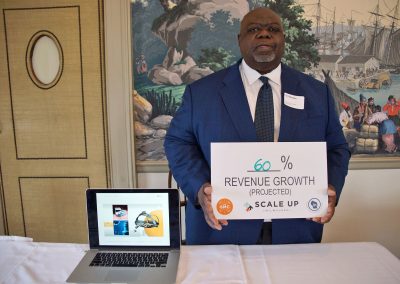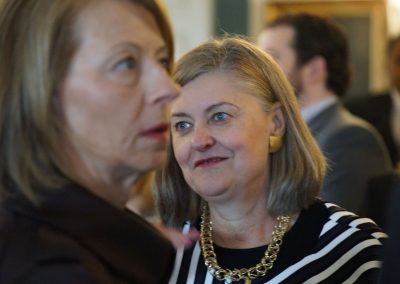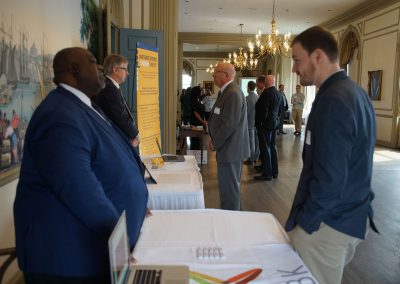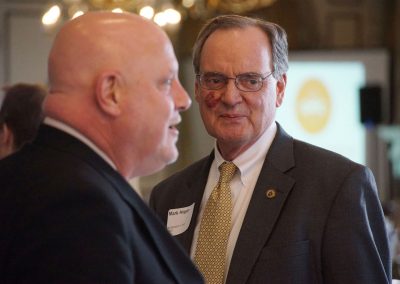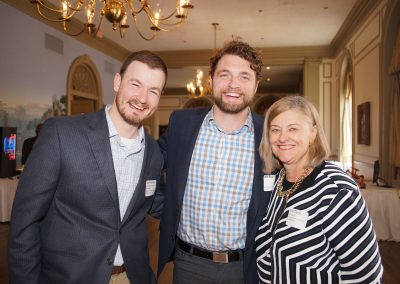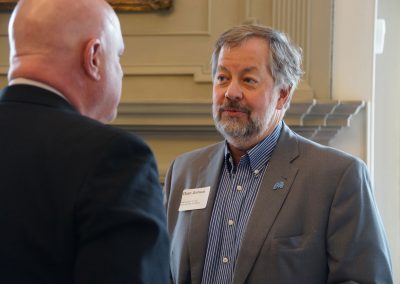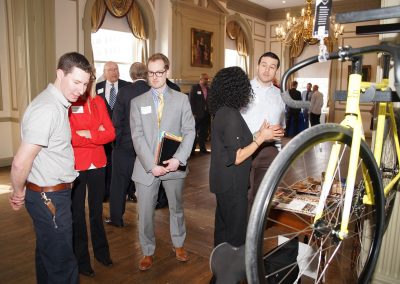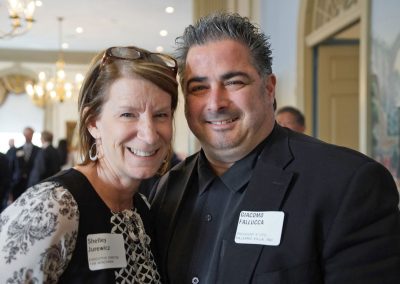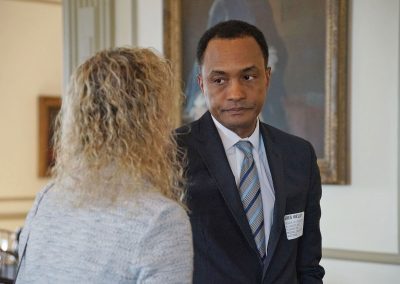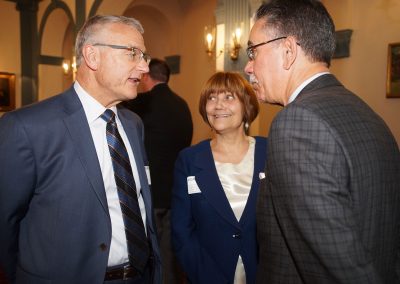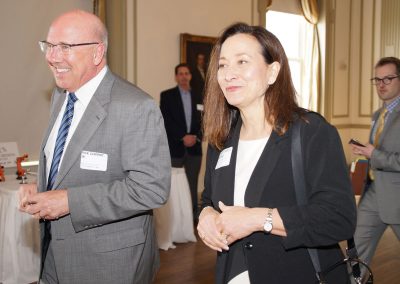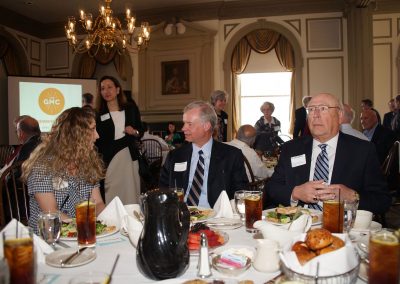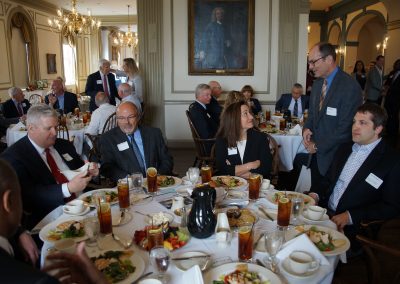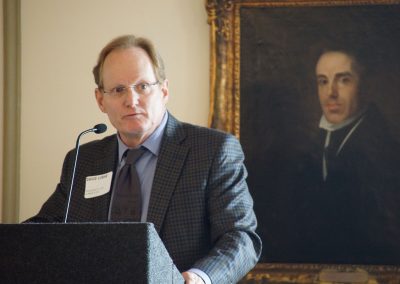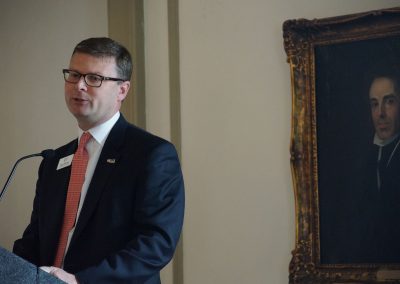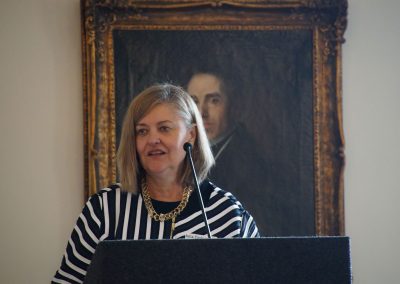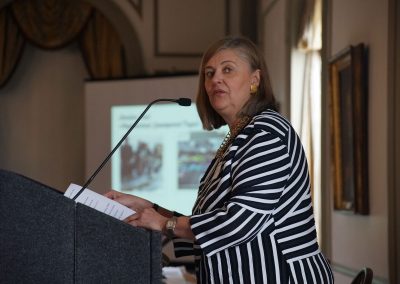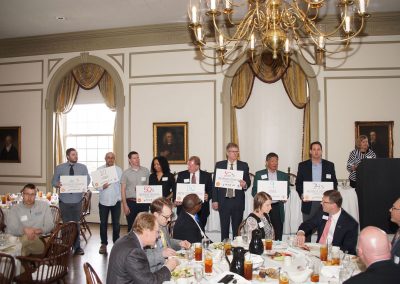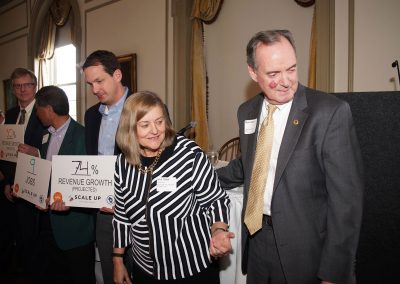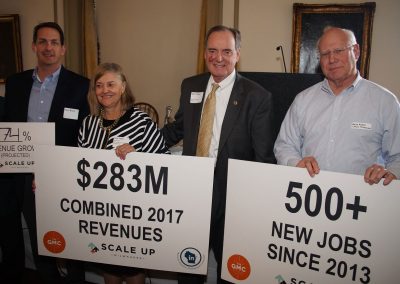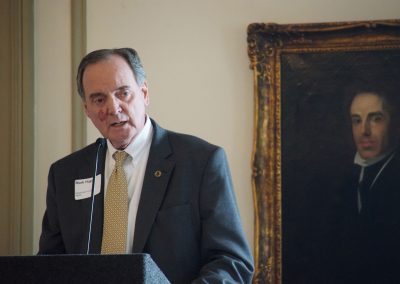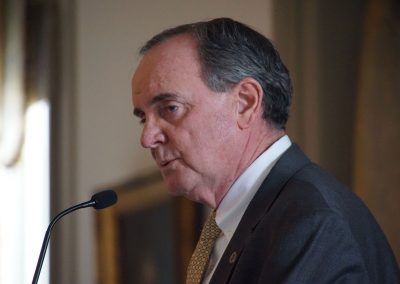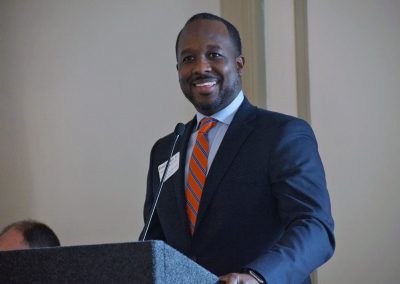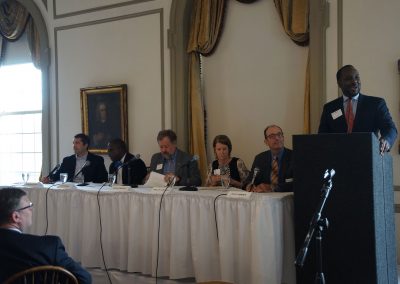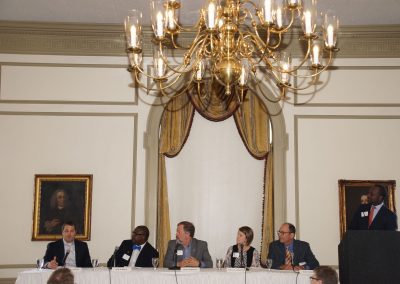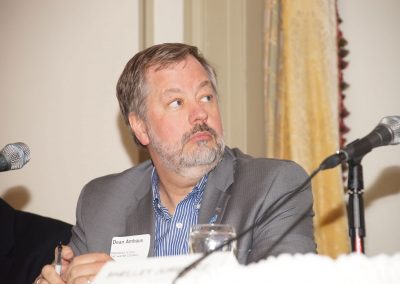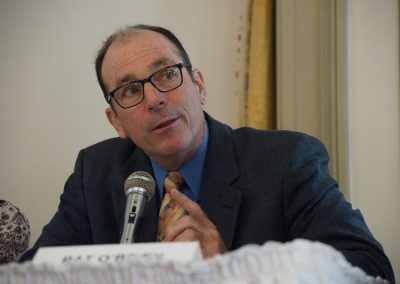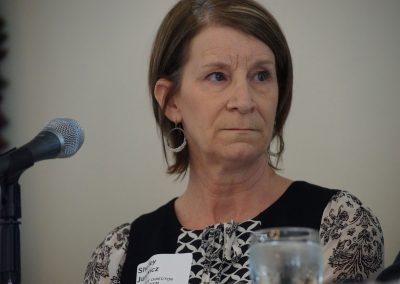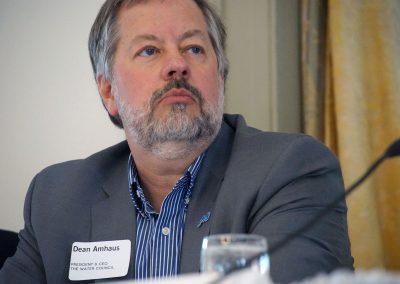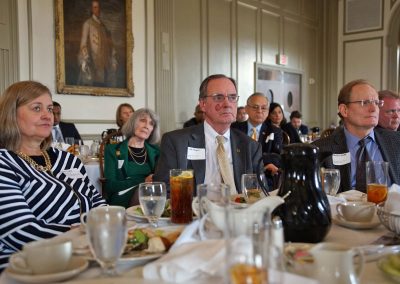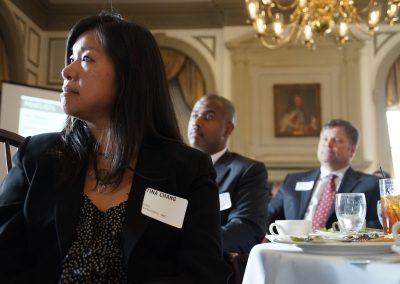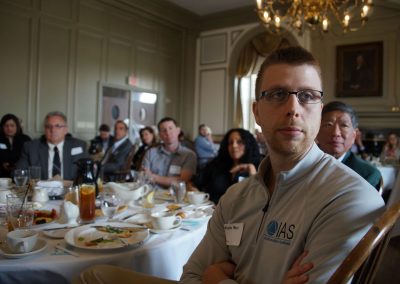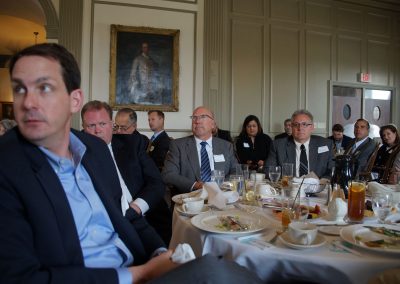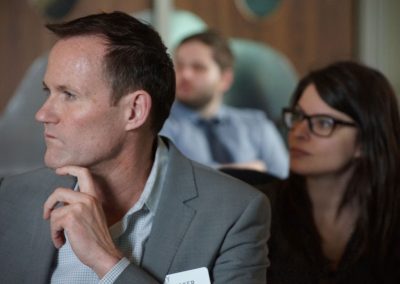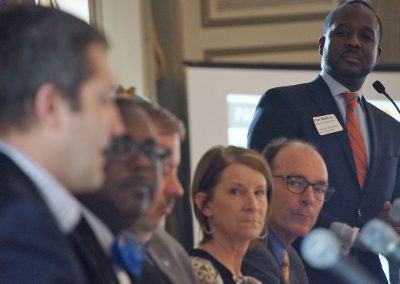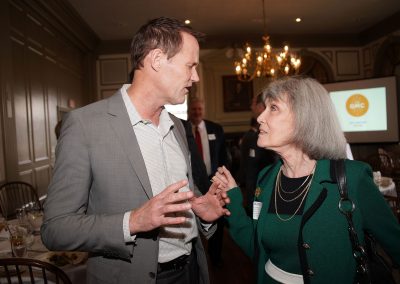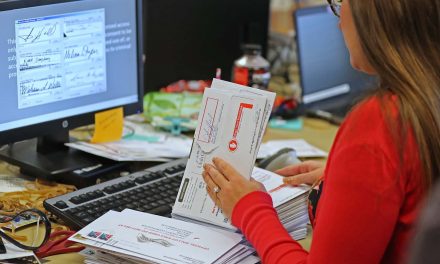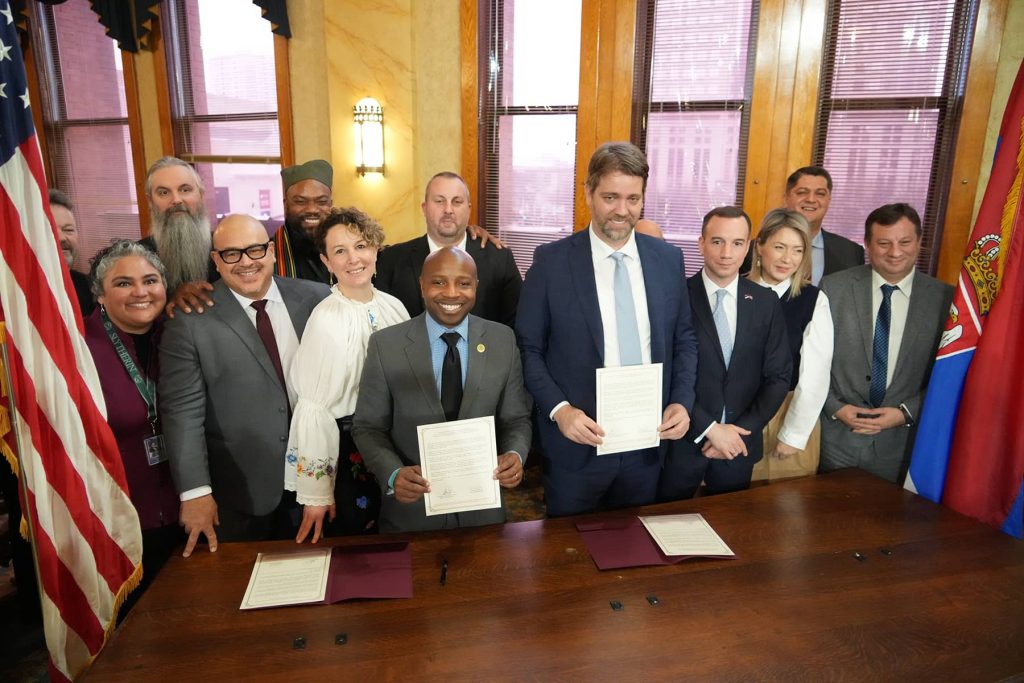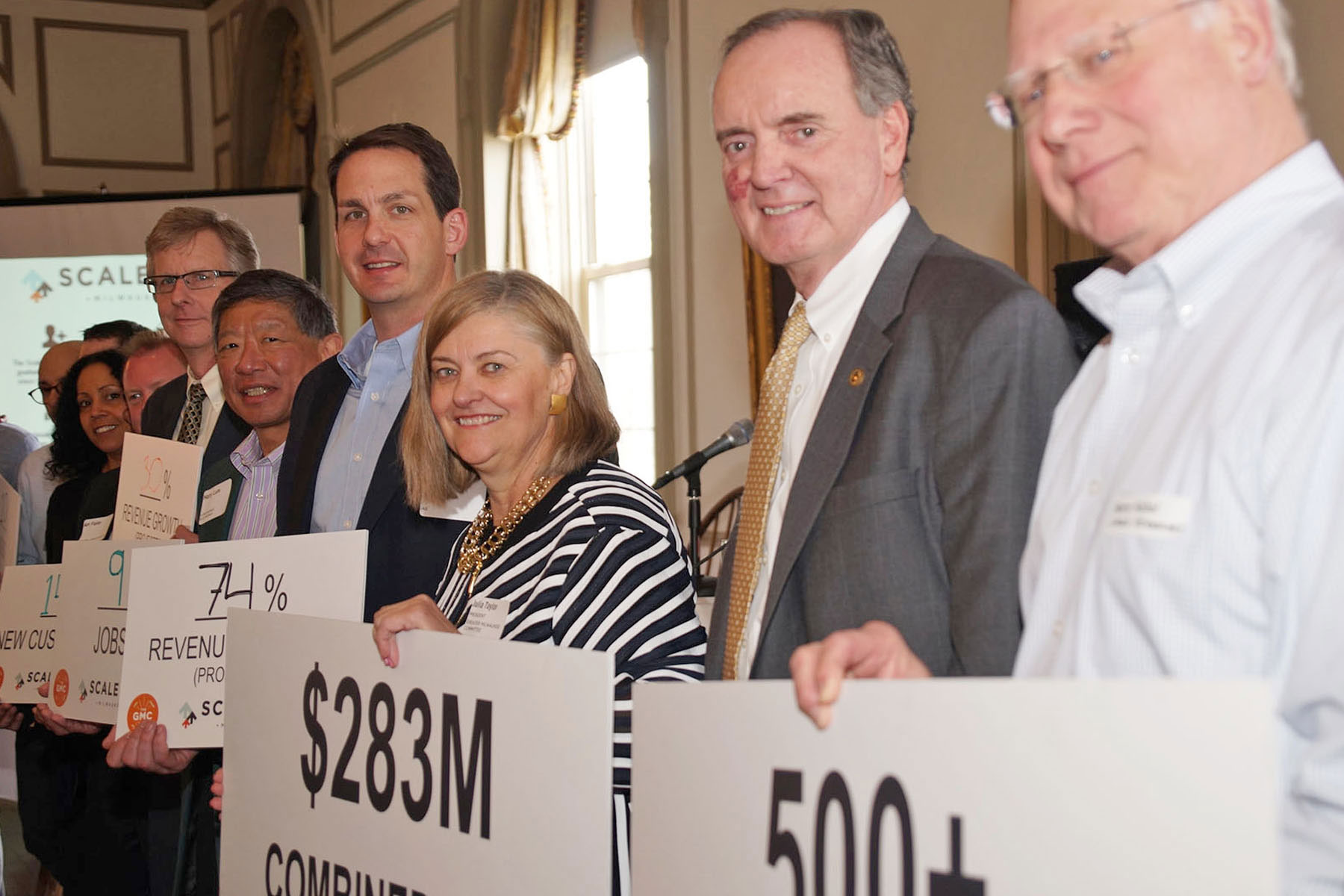
The Greater Milwaukee Committee (GMC) held its membership meeting, with a focus on the Scale Up program and regional jobs creation, at the University Club on April 10.
Leaders from local corporations and nonprofits attended the April event in support of the Greater Milwaukee Committee’s work and for a progress update. During the meeting it was announced that the GMC program Scale Up Milwaukee had created almost 500 jobs since it began.
“Altogether 57 companies have graduated from the six-month Scalerator program over the last three years,” said Julia Taylor, President of the Greater Milwaukee Committee. “In partnership with WEDC, the Scalerator program was launched in 2013 to help local and regional companies grow. WEDC’s leadership and direct guidance has helped this initiative become successful.”
Taylor updated the audience on three key areas that the Greater Milwaukee Committee was focused on: economic prosperity, innovation and talent, and vibrancy of place. The efforts included a new linear park along the Beerline Trail Neighborhood Development Project in the city’s Riverwest and Harambee area, MKE United Greater Downtown Action Agenda (MKE United) was moving into phase two with community engagement and technical research, The Commons had an open invitation for this year’s Demo Day, Teachtown MKE would be celebrating national Teachers Appreciation Day, and MKE Fellows were honored at a recent Milwaukee Bucks game.
A 14 year-old member of First Stage Children’s Theater, Regan Carter, performed at the event and shared her experience. It illustrated why an investment in the United Performing Arts Fund (UPAF) was actually an economic development investment.
“As a kid, I really loved to tell stories. Some of my earliest memories were of reading books. As I grew up, I grew to love telling stories, like journal keeping and poetry writing. Then I found First Stage, and I clicked with everyone right away,” said Carter. “I could see the First Stage motto ‘life skills through stage skills’ at work.”
The highlight of April’s gathering was a keynote address by Mark R. Hogan, secretary and CEO of the Wisconsin Economic Development Corporation (WEDC). The mission of WEDC is to advance and maximize opportunities in Wisconsin for businesses, communities, and people to thrive in a globally competitive environment. Hogan said he had observed that economic development was most successful when the drive for it came from local and regional levels.
“Working with NEWaukee has been important, and specifically providing financial support for their efforts and the Young Professionals YP Week which will take place later this month. This initiative has grown from 15 communities and 150 events in 2015, to this year with 25 communities that are participating in over 200 events throughout the state,” said Hogan. “We believe that YP Week is a direct result of the millennials caring about their communities across the state. How this program has grown, and how it also reflects on those who organized it at NEWaukee says a lot.”
In fiscal 2016, WEDC assisted 140 communities and almost 4000 businesses. It provided almost $200 million in state-based awards and leveraged that with 1.7 billion dollars of private investment capital. That resulted in almost 27,000 jobs and $100 million in return from state income taxes paid by employees, which gave a return on investment in just under four years. WEDC has invested nearly $150 million throughout the state, and leveraged another $835 million in private investment.
“I would be remiss if I did not single out the great relationship we have with the City of Milwaukee, and Commissioner Rocky Marcoux and his team,” added Hogan. “A great example is Transform Milwaukee, which is now five years old. It is a combined efforts between WHEDA, WEDC and the City of Milwaukee.”
Hogan also detailed how WEDC was providing matching dollars to M7 on two important programs: the Transformational Productivity Initiative and the Entrepreneur Support Grant. These support M7’s efforts to increase collaboration among Milwaukee area organizations and bridge the workforce gap that is occurring with a combination of improving productivity, while creating opportunities to attract and retain talent.
Elmer Moore, Jr., executive director of Scale Up Milwaukee, moderated a panel discussion that covered various topics of economic development and community engagement.
“We participated in the Scalerator program last year, and for our growth story we have had 40% growth this year.” – Tom Muldoon, Jr., American Exchanger Services and Scalerator graduate
“WEDC increases our confidence in a couple ways. They provided the financial support to launch initiatives that might not otherwise get launched. They also provided on ground support with that and connect us to state resources beyond financial contributions.” – Pat O’Brien, M7
“The efforts around collaboration, to me, the greatest strength that we have is our ability to work together with each other. At WWBIC, we really partner with a lot of entities, helping people move throughout the process as they get to their business, and supporting them as they grow. Sometimes the hard part is we don’t know who the players are, so how do we connect the dots? Uncovering that resource and really using the resource is important.” – Jon Gaines, Wisconsin Women’s Business Initiative Corporation (WWBIC)
“To have an organization like NEWaukee startup a few years ago from individuals who could just pick up the phone and get connected, I think that is something that we don’t recognize enough. Businesses can’t necessarily get to the individuals they need in Chicago, Atlanta, New York, or San Francisco, like you can do in Milwaukee. I don’t think we take enough credit for that ability to get plugged in here.” – Dean Amhaus, The Water Council
“We could not be where we are at today as a cluster organization without the support of WEDC. The state is home to 1,700 food and beverage makers. One-third of them have 9 or fewer employees. There is an incredible opportunity for the state to grow their food and beverage industry in a way that we haven’t seen today. So to have a group like the WEDC at the table with us, at every meeting supporting what we do, is incredible. You don’t get that in every state, and it makes a difference when we sit down with entrepreneurs, or existing businesses, or trying to put forward our initiatives.” – Shelley Jurewicz, Food and Beverage Industry Cluster Organization
A Scalerator village was on display before the April meeting started. It showcased graduates from the recent program, and gave the entrepreneurs a chance to share their experiences and stories with attendees since completing the program. The purpose of the Scalerator initiative is to demonstrate the powerful economic results when startups are nurtured. Their growth has a direct and positive impact on job growth, the tax base, personal wealth, and the quality of life in the local community.

